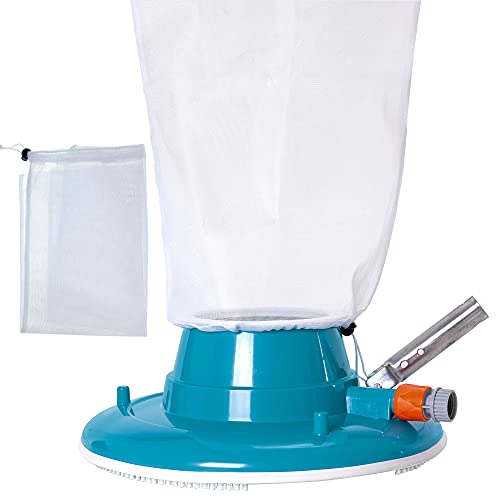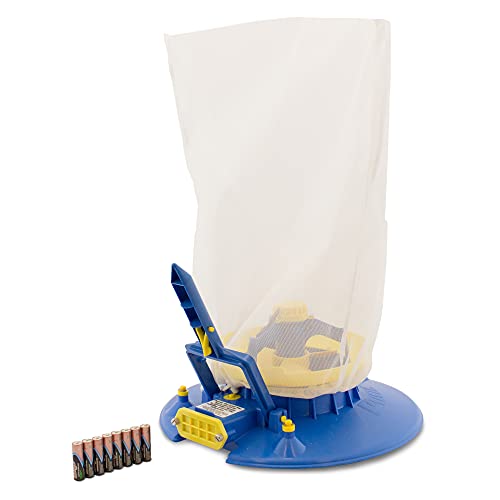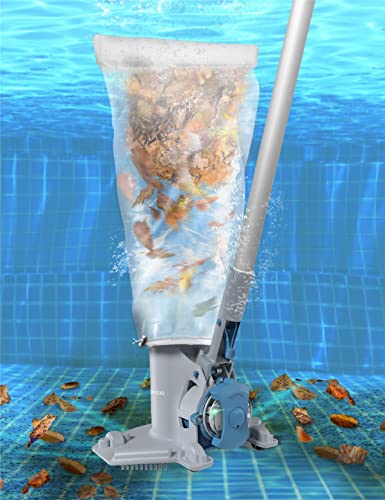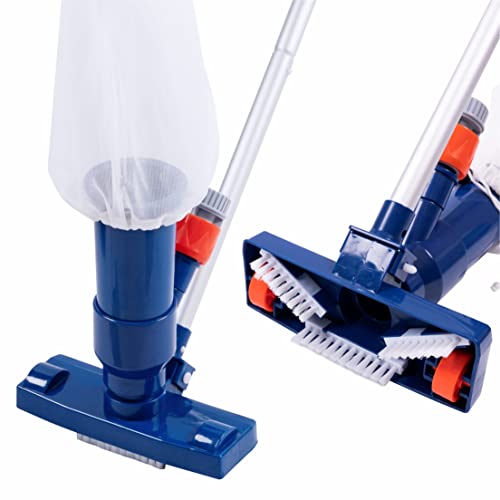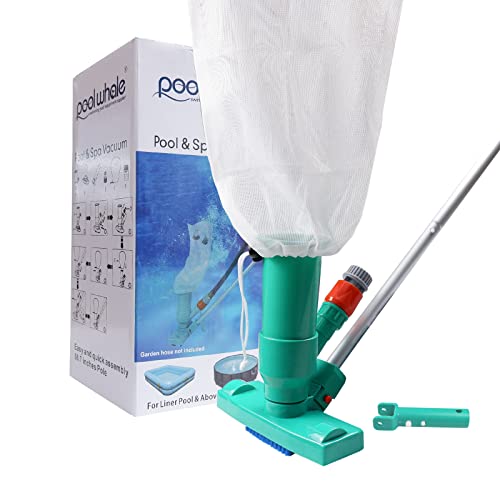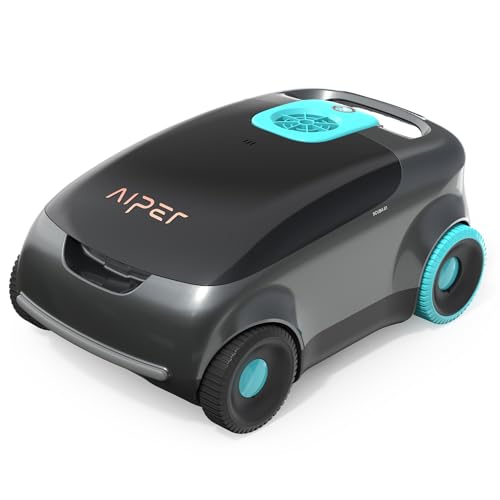Your pool is an investment that should bring you and your family luxury-level relaxation. Unfortunately, the weather can sometimes turn your pool's water from crystal clear to doused in debris. The good news is you no longer have to labor for hours to get all that debris, namely leaves, out of your pool when you have a leaf vacuum. These devices efficiently remove fallen leaves, debris, and other impurities, ensuring your water is crystal-clear for luxury lounging and swimming. We've listed the best pool leaf vacuums of 2024, starting with our overall top pick from the U.S. Pool Supply Store. Our comprehensive evaluation considers key factors such as battery life, suction power, and durability. Read on to learn more!
- Choosing the Best Pool Leaf Vacuum: A Buyer's Guide
- Pool Leaf Vacuum FAQs
- How does a pool leaf vacuum work?
- Do I need a special type of pool leaf vacuum for different types of pools?
- How do I maintain a pool leaf vacuum?
- What should I do if my pool leaf vacuum is not picking up debris?
- Can a pool leaf vacuum also clean dirt off the bottom of the pool?
- Why is my pool leaf vacuum losing suction?
- How often should I use a pool leaf vacuum?
Choosing the Best Pool Leaf Vacuum: A Buyer's Guide
Finding the best pool leaf vacuum can be a daunting task, especially with so many options on the market. Cleaning your pool is essential, but it doesn’t have to be a chore if you have the right tool. Pool leaf vacuums efficiently remove leaves, debris, and dirt that can affect your swimming experience. This buying guide will walk you through the critical attributes to consider, ensuring you make an informed decision and choose the best pool leaf vacuum tailored to your needs.
Power Source
The power source of the pool leaf vacuum directly impacts its efficiency and ease of use. Manual pool leaf vacuums need your physical effort to operate, while automatic ones work independently. Battery-powered vacuums offer the advantage of portability and ease of use, but consider the battery life and replacement costs. If you favor a hands-free operation, go for an automatic, robotic pool leaf vacuum that propels itself to collect debris. Your choice here should correspond with the amount of maintenance your pool requires and your personal preference for hands-on or hands-off cleaning.
Suction Power
The suction power of a pool leaf vacuum determines how effectively it can remove leaves and debris from your pool. Higher suction power vacuums can collect larger debris and clean quickly. However, they may consume more energy and be noisier. A pool leaf vacuum with adjustable suction is a versatile choice since it allows you to control the intensity based on the cleaning task at hand. Always go for a model that balances suction power with energy efficiency.
Cleaning Coverage
When selecting the best pool leaf vacuum, consider the cleaning coverage it provides. Does it clean the pool floor only, or can it climb walls and steps too? The greater the cleaning coverage, the less manual cleaning you’ll need to do. Choose a vacuum that matches the complexity of your pool’s design. Models with smart navigation technology ensure complete pool cleaning, including hard-to-reach areas.
Durability and Material
Pool leaf vacuums face harsh conditions, including exposure to pool chemicals and sun. Therefore, durability is an essential consideration. Look for a vacuum made from high-quality, UV-resistant, and corrosion-proof materials to ensure longevity. Stainless steel and heavy-duty plastic are good choices. A pool leaf vacuum with replaceable parts can extend the life of your device and provide value for money.
Ease of Use and Maintenance
The best pool leaf vacuum should be simple to set up, use, and maintain. Look for a plug-and-play model that requires no additional tools or complicated installations. User-friendly pool leaf vacuums can turn a tedious task into a quick and effortless routine. Also, consider the ease of debris removal and filter cleaning. A vacuum with a large, easy-to-empty leaf bag will save you time and effort.
Price and Warranty
Lastly, consider your budget and the warranty offered by the manufacturer. Pool leaf vacuums come in a wide range of prices, with more expensive models offering advanced features. However, a higher price does not always imply better performance. Look for a pool leaf vacuum that offers the best balance between cost and features. Additionally, a warranty can provide peace of mind and protect your investment.
Pool Leaf Vacuum FAQs
How does a pool leaf vacuum work?
A pool leaf vacuum works by creating suction that pulls in water, along with leaves and other debris, which then gets caught in a collection bag. The water is filtered out and returned to the pool while the debris remains in the bag.
Do I need a special type of pool leaf vacuum for different types of pools?
Pool leaf vacuums are generally versatile and can work in different types of pools. However, some models may be better suited to larger pools, while others are designed for smaller, above-ground pools. Always check the product specifications before purchase.
How do I maintain a pool leaf vacuum?
Maintenance for a pool leaf vacuum typically involves regularly cleaning out the collection bag and checking for any signs of damage or wear on the vacuum itself. Always refer to the product's user manual for specific maintenance instructions.
What should I do if my pool leaf vacuum is not picking up debris?
If your pool leaf vacuum is not picking up debris, check to make sure the collection bag is not full. If it is, empty it and try again. If the bag is not full, check for blockages in the vacuum or hose. If it's still not working, there may be a problem with the vacuum's suction and you should consult the product's user manual or contact the manufacturer.
Can a pool leaf vacuum also clean dirt off the bottom of the pool?
Yes, many pool leaf vacuums can pick up smaller particles like dirt and sand in addition to larger debris like leaves. Check the product specifications to make sure.
Why is my pool leaf vacuum losing suction?
A loss of suction could be due to a number of issues. The collection bag might be full, there could be a blockage in the vacuum or hose, or there might be a problem with the vacuum's motor. After checking the bag and looking for blockages, if you're still experiencing issues, you should consult the product's user manual or contact the manufacturer.
How often should I use a pool leaf vacuum?
The frequency with which you should use your pool leaf vacuum depends on the amount of debris your pool collects. If your pool is surrounded by trees or frequently collects leaves and other debris, you might need to vacuum it once a week or more. If your pool doesn't collect a lot of debris, you might only need to vacuum it once a month or less.




